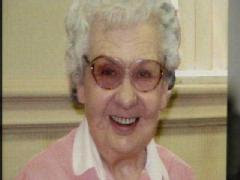

A Scott County woman who was sexually assaulted in her dorm room at the University of Northern Iowa has sued the school, accusing leaders of improper recruitment and supervision of athletes and botching how they handled the incident's aftermath.
The woman, who was an 18-year-old freshman at the time of the November 2004 assault, filed the lawsuit in Scott County District Court after the state denied her claim for $1 million in damages.
The assault and the college's reaction, the lawsuit states, "had a devastating impact on (her) life and education. She has suffered from feelings of violation, humiliation, and a loss of personal security and self-confidence.
"(The woman), who had been a good student in high school, found it increasingly difficult, after Nov. 12, 2004, to continue studying at an institution that had, with the exception of a few supportive individuals, shown little regard for her well-being, but had instead demonstrated great animosity toward her."
She eventually dropped out of school, the lawsuit states. The school sent her tuition bill to a collection agency, she said, and the dean of students told her he was "disappointed in her because she didn't tough it out."
Panther football players Baylen Bernard Laury and Joseph Roy Thomas, both of Texas, were charged in connection with the November 2004 rape of the woman. Laury entered an Alford plea of guilty in October 2005 to an assault with intent to inflict serious injury, an aggravated misdemeanor, after three hung jury trials. Thomas pleaded guilty to third-degree sex assault and was sentenced to 10 years in prison.
A representative from the University of Northern Iowa declined comment. The woman's attorney could not be reached for comment. The Courier does not name victims of sex abuse unless given permission to do so.
In the lawsuit, the woman alleges:
UNI football officials knew that certain recruits and athletes had criminal backgrounds and other "records of misconduct making it more likely (they) would engage in acts harmful to women."
College officials, she said, failed to take action to prevent them from engaging in such behavior. She also alleges that the football program knew of sexual harassment and assaults by recruits and athletes and continued to recruit athletes with criminal records, including one person with a sex assault charge.
After the assault, the college's sex assault counselor told her she "could not help with the situation" and that the woman should go to the student health service.
Administration did not contact her after the assault, she said. A meeting with UNI's president, requested by the woman's mother and grandfather, resulted in a referral to the dean of students for her accommodation requests, which included academic assistance, counseling and a move to a new dorm.
The result of that referral, the woman says, was that she "was ultimately required to walk around campus and ask various individual faculty members for accommodation, despite the dean of students being aware of the traumatic effects of the rape and (her) ongoing fears."
The woman's grandfather informed the dean that the woman slept with a dresser pushed in front of her door and that "walking around asking individual faculty members for accommodations was not working."
She received harassing phone calls, which she reported. She was told that "football players could not be controlled in their free time" and that she "needed to just tough it out."
The woman did commend the campus police department for being "considerate" and helping her receive a medical evaluation after the assault.
Story Here






No comments:
Post a Comment